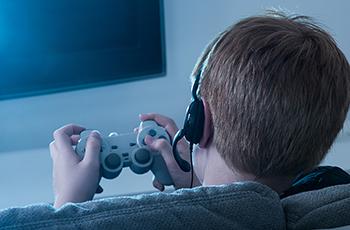
Holland Hospital therapist says this is a move in the right direction.
If you have access to a television, computer or mobile phone, you have access to video games. More now than ever, people young and old alike, are playing them.
“Gaming is engrained in our culture,” said Therapist, Mark Bombara, with Holland Hospital’s Behavioral Health Services. “Sales and usage continue to increase as technology improves. Online-play increases access and excitement allowing for massive numbers of people to play simultaneously from all over the world.”
Video gaming is so prominent; the World Health Organization (WHO) recently announced “gaming disorder” as a new mental health condition included in the 11th edition of its International Classification of Diseases (ICD). The ICD defines the disorder as a pattern of gaming behavior (“digital-gaming” or “video-gaming”) characterized by impaired control over gaming, increasing priority given to gaming over other activities to the extent that gaming takes precedence over other interests and daily activities, and continuation or escalation of gaming despite the occurrence or negative consequences.
“It is definitely a move in the right direction to increase awareness of how addicting gaming, especially online gaming, can be. Recognizing this as a legitimate disorder will encourage more treatment options for those who struggle with this disorder,” Bombara said.
According to the WHO, for gaming disorder to be diagnosed the behavior must cause significant damage to someone’s personal, family, social, educational or occupational setting(s) and be evident for at least 12 months.
“As with any addiction, it can progressively take over one’s life and decrease ability to function and meet daily responsibilities,” said Bombara. “Providers who specialize in addiction treatment can help a person decrease the denial involved and begin to learn how to address the symptoms associated with the disorder.”
The WHO says including gaming disorder in the ICD will result in health care providers’ increased attention to the risks, prevention and treatment of the disorder throughout the world.
“Parents and family members should not hesitate to address the potential problem before it gets out of hand. I would recommend consulting with a local mental health provider or mentioning it to the person’s primary care physician as being another option,” Bombara said. “Talking with children and teens about responsible gaming habits would also be encouraged. Setting limits and boundaries will help prevent problems.”